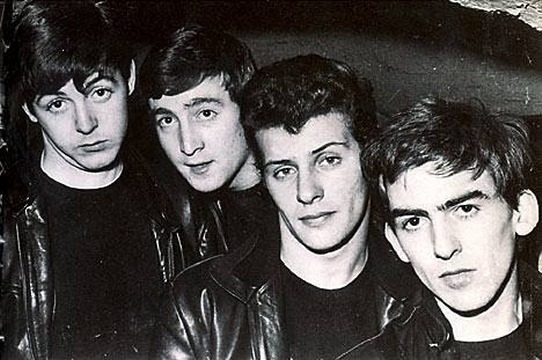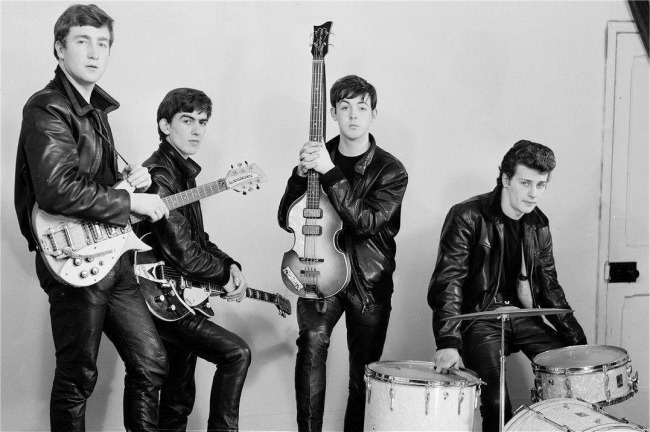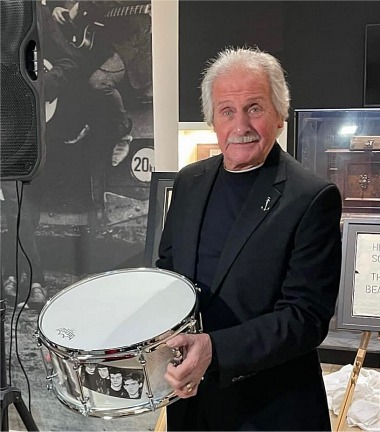
BILL AND SUE-ON HILLMAN: A 60-YEAR MUSICAL ODYSSEY
ROCK ROOTS CHAPTER
presents
PETE BEST
The Beatles Drummer 1960-1962
Pete Best was born on November 24, 1941 in Madras, India, Pete Best, The Beatles drummer, 1960-1962. In 1995, the surviving Beatles released Anthology 1, which featured a number of tracks with Best as drummer, including songs from the Decca and Parlophone auditions. Best received a substantial windfall—between £1 million and £4 million—from the sales, although he was not interviewed for the book or the documentaries. According to writer Philip Norman, the first time Best knew about the royalties due him for the use of those tracks "was a phone call" from Paul McCartney himself, "the one who'd been so keen to get rid of him -- the first time they'd spoken since it happened. 'Some wrongs need to be righted,' Paul told him. 'There's some money here that's owing to you and you can take it or leave it.' Best took it."
After Best's mother, Mona Best (1924–1988), moved to Liverpool in 1945, she opened the Casbah Coffee Club in the cellar of the Bests' house in Liverpool. The Beatles (at the time known as the Quarrymen) played some of their first concerts at the club.
In 1960, Allan Williams, the Beatles' manager, arranged a season of bookings in Hamburg, starting on 17 August 1960. Having no permanent drummer, Paul McCartney looked for someone to fill the Hamburg position. Best had been seen playing in the Casbah with his own group, the Black Jacks, and it was noted that he was a steady drummer, playing the bass drum on all four beats in the bar, which pushed the rhythm. In Liverpool, his female fans knew him as being "mean, moody, and magnificent", which convinced McCartney he would be good for the group. After the Black Jacks broke up, McCartney persuaded Best to go to Hamburg with the group, by saying they would each earn £15 per week (equivalent to £300 in 2018). As Best had passed his school exams (unlike Lennon, McCartney and Harrison, who had failed most of theirs), he had the chance to attend teacher-training college, but he decided that playing in Hamburg would be a better career move. Best had an audition in the Jacaranda Club, which Williams owned, and travelled to Hamburg the next day. Williams later said that the audition with Best was unnecessary, as the group had not found any other drummer willing to travel to Hamburg, but did not tell Best in case he asked for more money.
The Beatles first played a full show with Best on 17 August 1960 at the Indra club in Hamburg, and the group slept in the Bambi Kino cinema in a small, dirty room with bunk beds, a cold and noisy former storeroom directly behind the screen.Back in Liverpool, Mona arranged all the bookings for the group in Liverpool, after parting company with Williams in late 1961. Chas Newby, the ex-Black Jacks guitarist, was invited to play bass for four concerts, as bassist Stuart Sutcliffe had decided to stay in Hamburg. Newby played with the group at Litherland Town Hall and at the Casbah. He was shocked at the vast improvement in their playing and singing, and remembered Best's drumming to be very powerful, which pushed the group to play harder and louder. When the group returned to Hamburg, by which time McCartney had switched to bass, Best was asked to sing a specialty number written by McCartney, "Pinwheel Twist", while McCartney played drums, but despite being popular with the girls, Best always felt uncomfortable being at the front of the stage.
The Beatles were not new to studio recording when they auditioned for Parlophone and were given a recording contract by George Martin and Best's drumming had been found acceptable by Polydor in Hamburg, but recording engineer Ron Richards had alerted Martin to Best's unsuitability for British studio work. Martin wanted to replace Best with an experienced studio session drummer for the recordings. When Lennon, McCartney and Harrison learned that Martin and the engineers preferred replacing Best with a session drummer for their upcoming recording session on 4 September 1962, they considered using it as a pretext to permanently dismiss Best from the group. Eventually, after a very long delay, they asked Epstein to dismiss Best from the band. Best had been with the group for two years and four days.
Martin later stated, "I never suggested that Pete Best must go. All I said was that for the purposes of the Beatles' first record I would rather use a sessions man. I never thought that Brian Epstein would let him go. He seemed to be the most saleable commodity as far as looks went. It was a surprise when I learned that they had dropped Pete. The drums were important to me for a record, but they didn't matter much otherwise. Fans don't pay particular attention to the quality of the drumming."
Paul McCartney finally stated, in his Wingspan documentary in May 2001, that the sacking of Pete Best had nothing to do with his ability as a drummer. Explaining why one particular member of his subsequent band, Wings, "didn't last long" in that group McCartney said: "It's like in the Beatles, we had Pete Best, who was a really good drummer, but there just was something, he wasn't quite like the rest of us, we had like a sense of humour in common and he was nearly in with it all, but it's a fine line, you know, as to what is exactly in and what is nearly in. So he 'left' the band and we were looking for someone who would fit." He told Mark Lewisohn, similarly, that when George Martin suggested "changing their drummer" the Beatles responded: "Well, we're quite happy with him, he works great in the clubs," but also that "Pete had never quite been like the rest of us. We were the wacky trio and Pete was perhaps a little more sensible; he was slightly different from us, he wasn't quite as artsy as we were." Epstein subsequently claimed in his autobiography that Lennon, McCartney and Harrison thought that Best was "too conventional to be a Beatle" and added that "though he was friendly with John, he was not liked by George and Paul".
Hunter Davies recalled that while working with the Beatles on their authorized biography in 1968, "when the subject of Pete Best came up they seemed to cut off, as if he had never touched their lives. They showed little reaction … I suppose it reminded them not just that they had been rather sneaky in the handling of Pete Best's sacking, never telling him to his face, but that for the grace of God, or Brian Epstein, circumstances might have been different and they could have ended up [like Pete]." During the height of Beatlemania Best attempted suicide, but his mother, Mona, and his brother, Rory, prevented him from completing it. Best stated that after the intervention "They gave me the most sensible talking-to I've ever had in my life," which resulted in him changing his outlook.
Epstein secretly arranged with his booking agent partner, Joe Flannery, for Best to join Lee Curtis & the All Stars, which then broke off from Curtis to become Pete Best & the All Stars. They signed to Decca Records, releasing the single "I'm Gonna Knock On Your Door", which was not successful. After working in a number of commercially unsuccessful groups, Best gave up the music industry to work as a civil servant for 20 years, before starting the Pete Best Band.
Ref: John Einarson
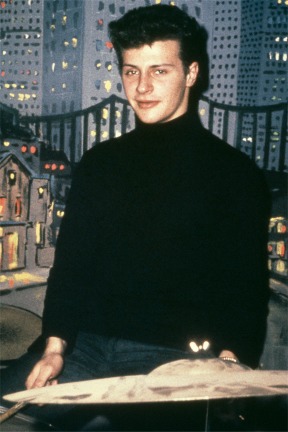
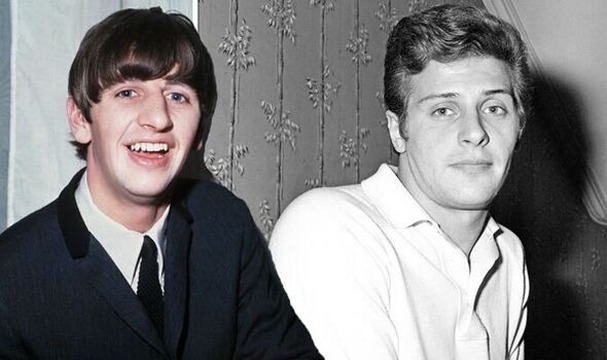
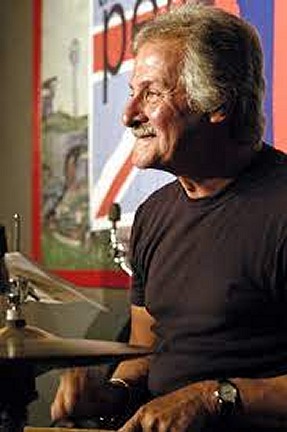
THE BEATLES FAB 5
www.hillmanweb.com/beatles4/fab5
